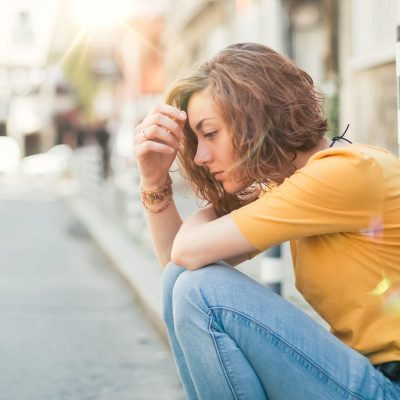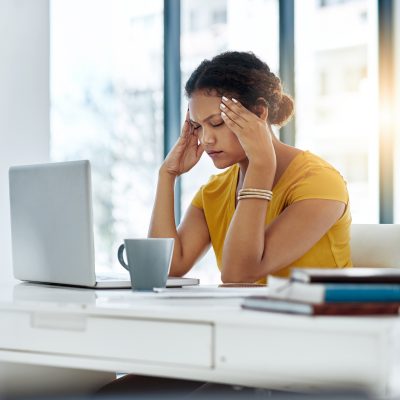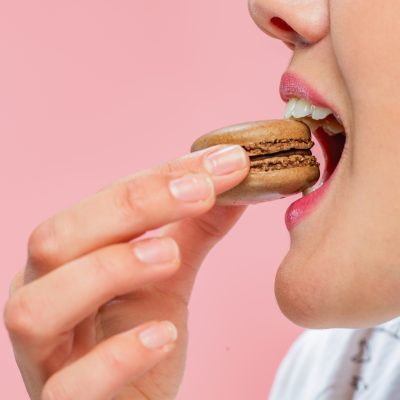Depression is a sensitive and complex condition which affects our life significantly. It can creep up on us or be triggered by past experiences, traumas, loss – or any negative event that has impacted your life. Standard treatments for depression include talking therapy (where you speak to a counsellor, psychologist or psychiatrist), and medications (antidepressants). Many people find these – or a combination of these – helpful. But there are people who find no relief from symptoms of depression with these treatments. Thanks to medical advancements, there is a new depression treatment using rTMS.
Repetitive Transcranial Magnetic Stimulation (rTMS) is a novel drug-free treatment for depression. It has been widespread in the U.S. but has only come over to the UK in recent years.
How does rTMS work?
rTMS treatment involves placing a magnetic coil on the patient’s head. This is connected with an electric pulse generator to provide controlled magnetic current stimulations to the dorsolateral prefrontal cortex, the area of the brain which controls how brain cells communicate with each other. This helps activate regions of the brain with decreased activity due to depression.
Is depression treatment using rTMS effective?
Absolutely! rTMS is effective for depression treatment. Studies have shown that rTMS improves serotonin levels in the brain, which gives us that happy feeling. Opinions vary widely between studies but it is thought that up to two thirds of people do not get relief from antidepressants and talking therapies.
With rTMS, at the time of writing this, The London Psychiatry Centre states that 61% of people treated at their clinic with rTMS achieve full recovery within 6 weeks.
Treatments like cognitive behavioural therapy (CBT), psychodynamic therapy, antidepressants and natural mood stabilisers only go so far in curing depression. Antidepressants are often accompanied by unpleasant side effects like dizziness, insomnia, headaches, sickness, weight gain and more. rTMS provides the upper hand on these in the following ways:
1. It is a non-invasive treatment
rTMS is a non-invasive treatment, which simply means that no tools are used to break the skin and other physical attributes of the body. It is an incision free treatment.
2. High success rate
Patients who have undergone unsuccessful experiences with other depression treatments in the past, can have great results with rTMS treatment. Moreover, studies show that rTMS has proven improved efficacy for depression and has great potential to become a standard procedure in the future.
3. Side effects
When compared with antidepressants and other mood stabilisers, rTMS has shown to have no significant side effects. Other than a transient headache, rTMS has proven to be a safe treatment.
4. Long lasting
rTMS is a long lasting treatment for depression when compared with its other counterparts. Most patients fully recover. This is significantly higher than other treatments for depression.
Is rTMS safe?
Many people who hear about receiving magnetic pulses to the brain may question – Is rTMS safe? Can it damage my brain?
Thankfully, rTMS does not damage the brain. It has been observed via multiple studies that rTMS virtually has no adverse effect on the brain due to the low frequency at which the treatment is conducted. Many scientists have confirmed the efficacy of rTMS as a depression treatment, and have deemed it safe to be conducted under proper guidelines.
What are the side effects of rTMS?
rTMS has very mild side effects compared to its counterparts. A mild discomfort, transient headache, and fatigue are the only side effects that have been reported.All these side effects are temporary, which makes rTMS the safest treatment for depression. Mood stabilisers, ECT and other counterparts like antidepressants come with a host of side effects.
Should you try depression treatment using rTMS?
Now that we have answered most of your questions on rTMS treatment, you may be sure of one thing – rTMS is safe. So should you go ahead with it? It is completely your choice. If you don’t know where to get started, a consultation at The London Psychiatry Centre, UK would be a good first step. They are pioneers in rTMS for depression and can guide you towards recovery.







